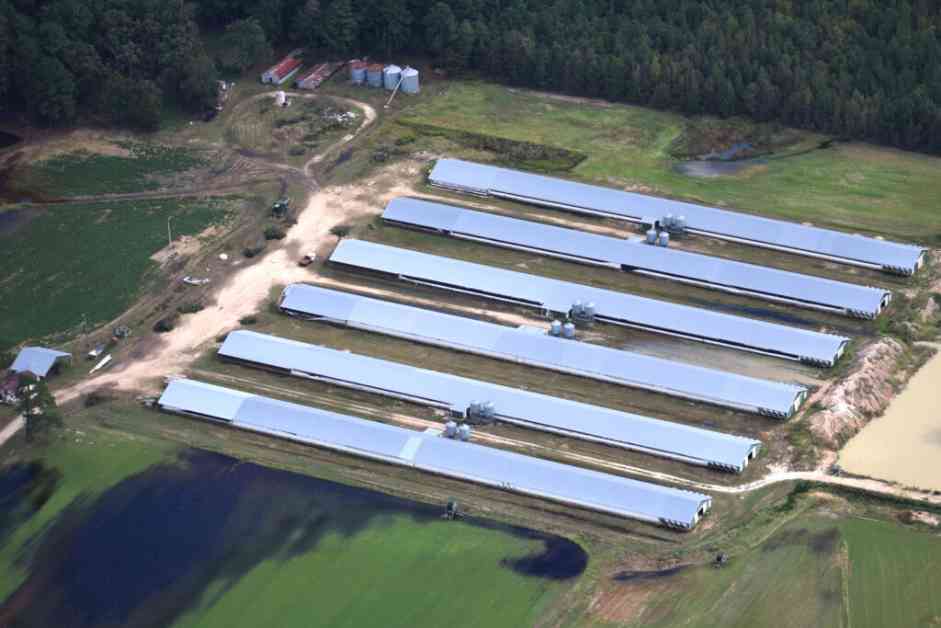The North Carolina Supreme Court seemed to be on the side of the agriculture lobby Wednesday in a hearing for a case that could nullify key environmental, civil rights and public health protections for neighbors of the state’s 2,000 industrialized livestock farms. If the justices uphold an appellate court’s decision in favor of the N.C. Farm Bureau Federation, the N.C. Department of Environmental Quality wouldn’t be allowed to enforce three provisions in the state’s general permits for concentrated animal feeding operations that were forged as part of a civil rights settlement.
Instead, those three requirements for certain farms—groundwater monitoring, annual reporting, and soil testing for phosphorus loss—would have to go through a more extensive rule-making process led by the Environmental Management Commission. The EMC is made up of political appointees, whose appetite for regulation varies.
“This case presents a foundational question of administrative accountability whether state agencies may sidestep the safeguards of rulemaking by imposing sweeping regulatory mandates through general permits,” the Farm Bureau Federation attorneys wrote in court documents. The case originates from several settlement conditions contained within a 2014 civil rights complaint. Lawyers for several environmental justice groups and neighbors of industrialized hog farms had filed a complaint with the U.S. Environmental Protection Agency, alleging that DEQ, by issuing general permits without adequate protections, disproportionately burdened people of color and low-income residents, who are more likely to live near the farms.
Most of the state’s concentrated animal feeding operations, or CAFOs, hold a general permit, which applies to a class of operations. A smaller number have individual permits, whose conditions are tailored to specific farms. DEQ renews and, if necessary, revises general permits every five years, after several public hearings and opportunities to comment. As part of the settlement, DEQ incorporated three conditions in a 2019 general permit.














